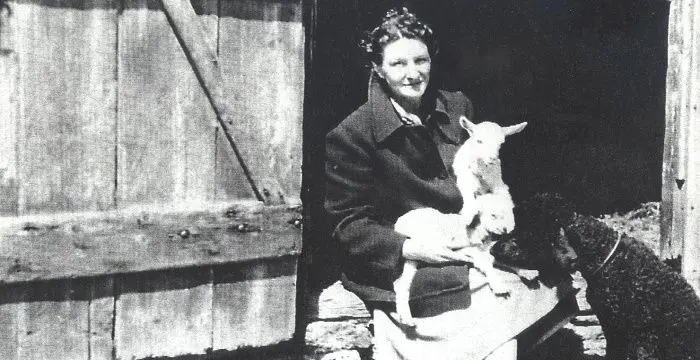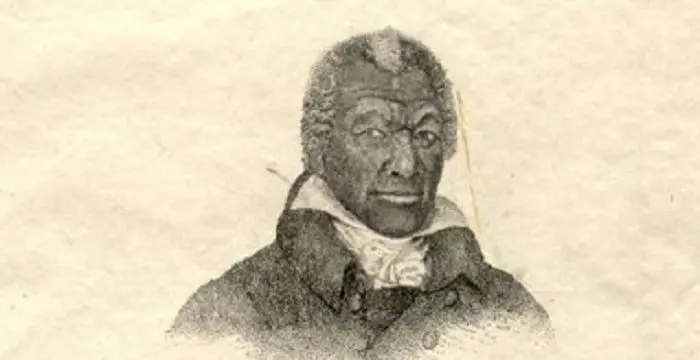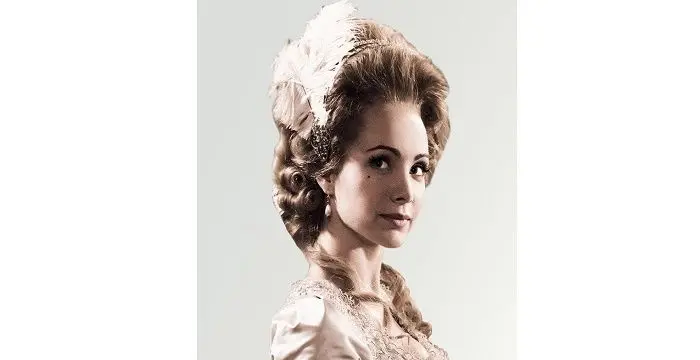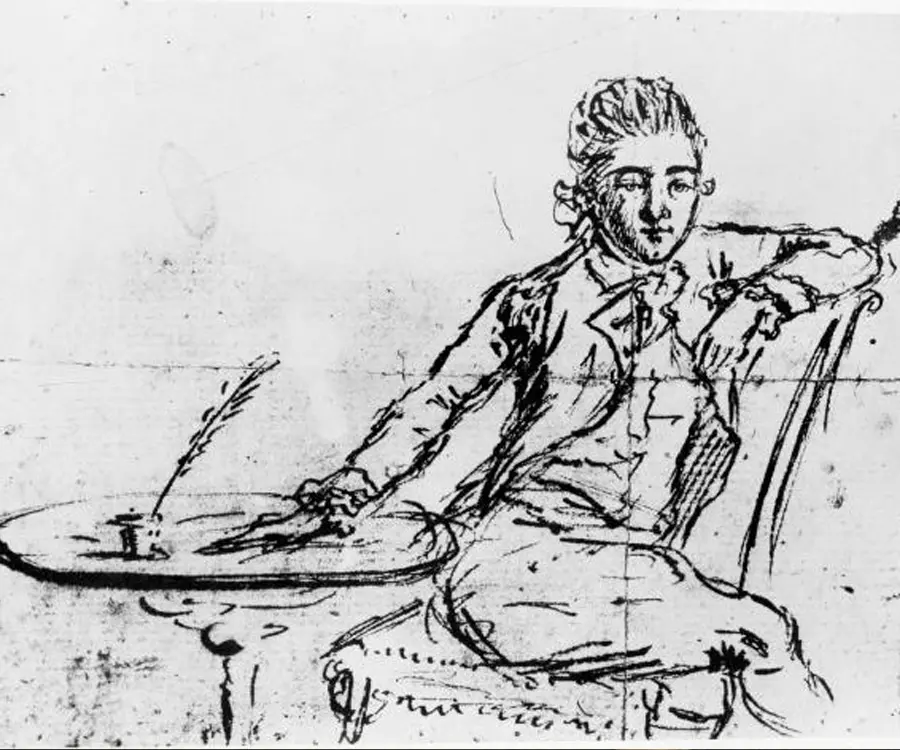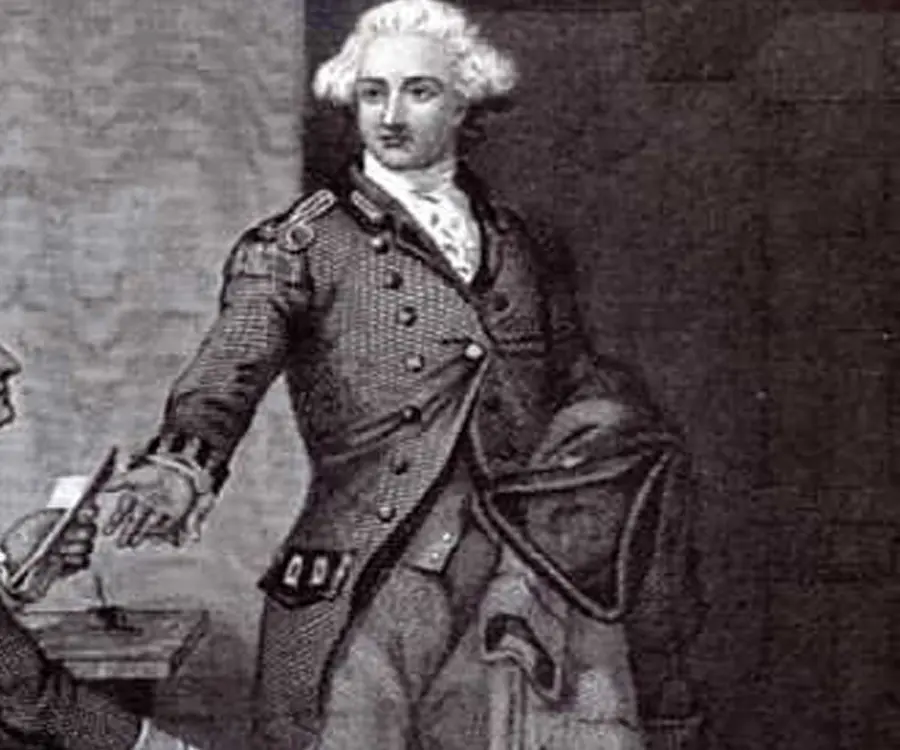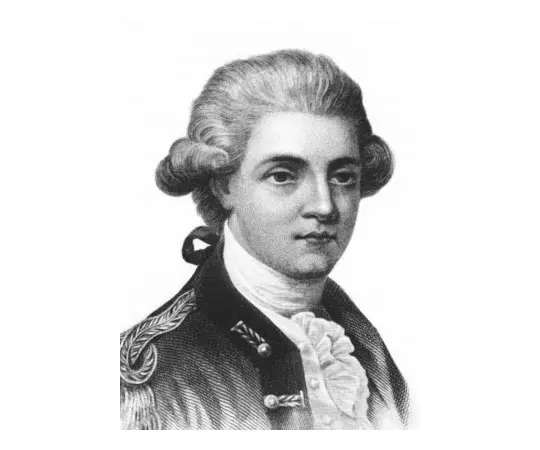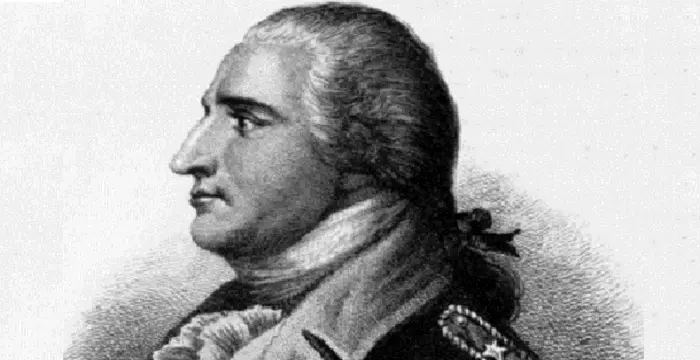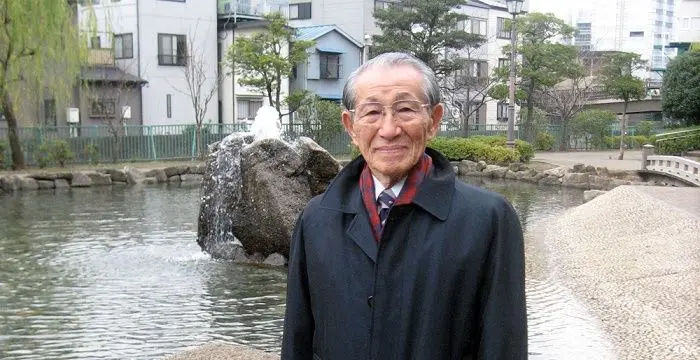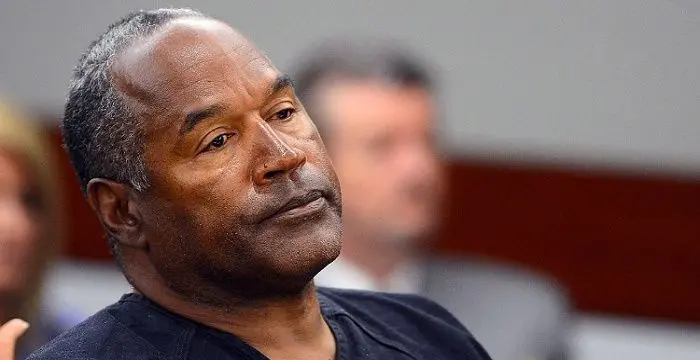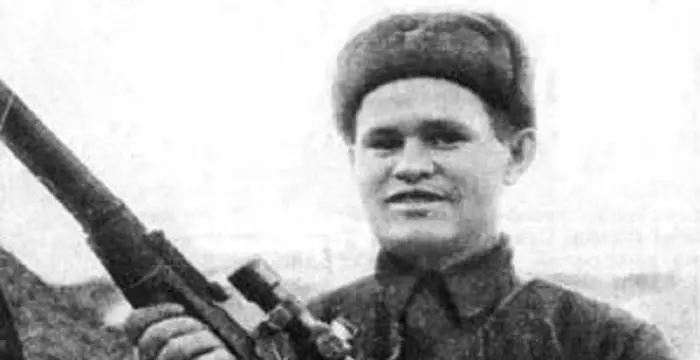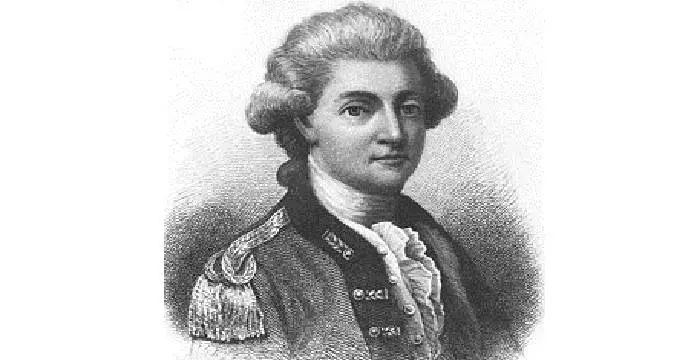
John André - Spy, Career and Personal Life
John André's Personal Details
John André was a British Army officer who was tried and executed for his espionage by the ‘Continental Army’ at the time of the ‘American War of Independence’
| Information | Detail |
|---|---|
| Birthday | May 2, 1750 |
| Died on | October 2, 1780 |
| Nationality | British |
| Famous | Miscellaneous, Spies, 18th Century British Army Officer, Spy |
| Known as | John Andre |
| Cause of death |
|
| Birth Place | London |
| Gender | Male |
| Father | Antoine André |
| Mother | Marie Louise Giradot |
| Sun Sign | Taurus |
| Born in | London |
| Famous as | 18th Century British Army Officer & Spy |
| Died at Age | 30 |
// Famous Spy
Virginia Hall
Virginia Hall Goillot was an American spy and most wanted by the ‘Geheime Staatspolizei’ (Gestapo), the official secret police of Nazis. This biography of Hall profiles her childhood, life, career, achievements and timeline.
James Armistead Lafayette
James Armistead Lafayette was an African-American slave who worked for the ‘American Continental Army’ during the Revolutionary War of America as a spy. This biography profiles his childhood, life, career & timeline.
Peggy Shippen
Peggy Shippen was a notorious spy who along with her husband Benedict Arnold conspired against the Americans. Check out this biography to know more about her life.
John André's photo
Who is John André?
John André was a British Army officer who was tried and executed for his espionage by the ‘Continental Army’ at the time of the ‘American War of Independence’. After being sent to the United States, he served as chief intelligence officer in New York City under General Sir Henry Clinton, the then British commander in chief. In a plot to secure British control over the fort at West Point, New York, he undertook secret correspondence with the embittered American General Benedict Arnold. General Benedict Arnold, who was made the commandant of the fort in August 1780, was convinced by John André on September 21, 1780 to surrender the fort for £20,000. However before the plan could be carried forward André was taken into custody by three military men who recovered the papers regarding the plot from him. He was convicted by a board of officers appointed by General George Washington and was sentenced to death. He was finally hanged to death in October 1780 following General Sir Henry Clinton’s dismissal to exchange him with American General Benedict Arnold, who by that time had fled to the British territory.
Childhood & Early Life
He was born on May 2, 1750 in London, England, to Antoine André and Marie Louise Girardot, a rich Huguenot couple. His father was a merchant.
He attended the ‘St Paul's School’, the ‘Westminster School’ and thereafter studied in Geneva.
He was enlisted in the British Army at twenty years of age and in 1774 he served as a lieutenant at the ‘7th Royal Fusiliers’ regiment while in Canada.
In November 1775 he was apprehended by General Richard Montgomery from ‘Fort Saint-Jean’ and was interned at Lancaster, Pennsylvania. As he was not permitted to leave the town, he complacently rambled around the town while staying in the house of Caleb Cope. He was later released in December 1776 in a prisoner exchange.
On January 18, 1777, he became a captain and was promoted as a major in 1778.
He had a charismatic and cheerful persona that soon made him an endearing person among the colonial society in New York and Philadelphia. Apart from English, he was also fluent in German, Italian and French.
His advanced education and skill in extracurricular activities like drawing, playing flute, writing lyrics and comic verses differentiated him from his contemporaries. After General Howe resigned, André prepared a spectacular ‘Mischianza’ on May 18, 1778 before the General’s departure to England.
He gained control over the house of Benjamin Franklin during his tenure in Philadelphia. It was alleged that when the British left Philadelphia, he took out many expensive things from the house, including scientific apparatus, books, musical instruments and a portrait of Benjamin Franklin, under the instruction of Major-General Charles Grey. During the early twentieth century the portrait was returned to the US by the descendants of Charles Grey.
Career
In 1779 the British Army appointed him the Adjutant general holding the rank of major under General Sir Henry Clinton. General Clinton was cognizant of America’s position at West Point and was aware that capturing West Point would liberate Hudson River from colonial power and the army of Washington will be forced to New Jersey.
André became chief of British secret intelligence in April 1779 in New York City and by next year he initiated a negotiation with embittered American General Benedict Arnold through secret correspondence.
General Benedict Arnold became the commandant of the fort at West Point in August 1780. John André through his correspondence, which was often aided by Peggy Shippen - a Loyalist and wife of Arnold, persuaded Arnold to surrender the fort for £20,000. The deal would allow the British to separate out New England from the dissident colonies.
On September 20, 1780 André boarded ‘Vulture’, the sloop-of-war of Britain to meet Arnold. Next night he was received by Joshua Hett Smith who sailed to the ‘Vulture’ on the ‘Hudson River’ in a small boat to bring André to shore as instructed by Arnold.
On September 21, 1780, André and Arnold had a night long discussion in the forests below Stony Point and agreed to take forward the plan. Thereafter they headed towards the house of Thomas Smith in West Haverstraw, New York that was occupied by his brother Joshua Hett Smith.
Meanwhile on September 22, 1780, ‘Vulture’ retreated down the river leaving André behind following firing by American troops led by Col. James Livingston.
Arnold gave him plain clothes and a passport with a fake name, John Anderson, to evade American borders.
However on September 23, 1780 he was intercepted near Tarrytown, New York by three military men David Williams, Isaac Van Wart and John Paulding. They recovered six papers from his stockings. The papers that bore Arnold’s handwriting revealed the plot. He was taken to the headquarters of ‘Continental Army’ in Sand Hills.
He was first confined at Wright's Mill in North Castle, New York, and then at Tappan, at the American Army headquarters.
Lieutenant Colonel John Jameson, the post commandment did not suspect Arnold to be a traitor but Major Benjamin Tallmadge, head of Continental Army Intelligence conveyed the possibility of a high-ranking official to defect to the British.
While the six papers were sent to General George Washington, on insistence of John Jameson a note was sent to Arnold detailing the whole episode. Arnold fled to the British territory soon after he received the note.
A board of senior officers was appointed by General George Washington to probe the matter. On September 29, 1780 the board convicted him as a spy from the enemy. According to their assessment death penalty was given to him.
Though British commander Sir Henry Clinton tried to save André, he disagreed to hand over Arnold to get back André. A request was made by André to George Washington that he be executed by firing squad but on October 2, 1780, following war rules he was hanged for his espionage at Tappan, New York.
He refused to get blindfolded at the time of hanging and wore the noose himself around his neck. His enchanting nature made him lovable even to the prison officers who mourned his death as their counterparts in Britain. The drawing he made on the day before his hanging, that somewhat reflects himself, is now in the custody of ‘Yale College’.
Personal Life & Legacy
His mother and three sisters received pension and in 1781 as a mark of honour to André, his brother William was made a baronet.
His remains that were interred under the gallows were brought to England under the direction of the Duke of York in 1821 and interred in Hero's Corner at Westminster Abbey beside remains of kings and poets. A marble monument is erected above his grave that portrays Britannia lamenting the death of André beside a British lion.
A monument was erected at Tappan at the site of his execution on October 2, 1879.
// Famous Spies
Nathan Hale
Nathan Hale was an American patriot and martyr who fought for the Continental Army during the American War of Independence. This biography explores his childhood, early life, career, achievements, personal life, legacy and timeline.
Hiroo Onoda
Hiroo Onoda was an Imperial Japanese Army intelligence officer. Check out this biography to know about his childhood, family life, achievements and fun facts about him.
Virginia Hall
Virginia Hall Goillot was an American spy and most wanted by the ‘Geheime Staatspolizei’ (Gestapo), the official secret police of Nazis. This biography of Hall profiles her childhood, life, career, achievements and timeline.
John André biography timelines
- // 2nd May 1750He was born on May 2, 1750 in London, England, to Antoine André and Marie Louise Girardot, a rich Huguenot couple. His father was a merchant.
- // 1774He was enlisted in the British Army at twenty years of age and in 1774 he served as a lieutenant at the ‘7th Royal Fusiliers’ regiment while in Canada.
- // Nov 1775 To Dec 1776In November 1775 he was apprehended by General Richard Montgomery from ‘Fort Saint-Jean’ and was interned at Lancaster, Pennsylvania. As he was not permitted to leave the town, he complacently rambled around the town while staying in the house of Caleb Cope. He was later released in December 1776 in a prisoner exchange.
- // 18th Jan 1777 To 1778On January 18, 1777, he became a captain and was promoted as a major in 1778.
- // 18th May 1778His advanced education and skill in extracurricular activities like drawing, playing flute, writing lyrics and comic verses differentiated him from his contemporaries. After General Howe resigned, André prepared a spectacular ‘Mischianza’ on May 18, 1778 before the General’s departure to England.
- // 1779In 1779 the British Army appointed him the Adjutant general holding the rank of major under General Sir Henry Clinton. General Clinton was cognizant of America’s position at West Point and was aware that capturing West Point would liberate Hudson River from colonial power and the army of Washington will be forced to New Jersey.
- // Apr 1779André became chief of British secret intelligence in April 1779 in New York City and by next year he initiated a negotiation with embittered American General Benedict Arnold through secret correspondence.
- // Aug 1780General Benedict Arnold became the commandant of the fort at West Point in August 1780. John André through his correspondence, which was often aided by Peggy Shippen - a Loyalist and wife of Arnold, persuaded Arnold to surrender the fort for £20,000. The deal would allow the British to separate out New England from the dissident colonies.
- // 20th Sep 1780On September 20, 1780 André boarded ‘Vulture’, the sloop-of-war of Britain to meet Arnold. Next night he was received by Joshua Hett Smith who sailed to the ‘Vulture’ on the ‘Hudson River’ in a small boat to bring André to shore as instructed by Arnold.
- // 21st Sep 1780On September 21, 1780, André and Arnold had a night long discussion in the forests below Stony Point and agreed to take forward the plan. Thereafter they headed towards the house of Thomas Smith in West Haverstraw, New York that was occupied by his brother Joshua Hett Smith.
- // 22nd Sep 1780Meanwhile on September 22, 1780, ‘Vulture’ retreated down the river leaving André behind following firing by American troops led by Col. James Livingston.
- // 23rd Sep 1780However on September 23, 1780 he was intercepted near Tarrytown, New York by three military men David Williams, Isaac Van Wart and John Paulding. They recovered six papers from his stockings. The papers that bore Arnold’s handwriting revealed the plot. He was taken to the headquarters of ‘Continental Army’ in Sand Hills.
- // 29th Sep 1780A board of senior officers was appointed by General George Washington to probe the matter. On September 29, 1780 the board convicted him as a spy from the enemy. According to their assessment death penalty was given to him.
- // 2nd Oct 1780Though British commander Sir Henry Clinton tried to save André, he disagreed to hand over Arnold to get back André. A request was made by André to George Washington that he be executed by firing squad but on October 2, 1780, following war rules he was hanged for his espionage at Tappan, New York.
- // 1781His mother and three sisters received pension and in 1781 as a mark of honour to André, his brother William was made a baronet.
- // 1821His remains that were interred under the gallows were brought to England under the direction of the Duke of York in 1821 and interred in Hero's Corner at Westminster Abbey beside remains of kings and poets. A marble monument is erected above his grave that portrays Britannia lamenting the death of André beside a British lion.
- // 2nd Oct 1879A monument was erected at Tappan at the site of his execution on October 2, 1879.
// Famous Miscellaneous
Jason Simpson
Jason Simpson is the son of former NFL running back, broadcaster and actor O. J. Simpson. Check out this biography to know about his childhood, family, life, and little known facts about him.
Melissa Brim
Melissa Brim is the ex-girlfriend of former professional boxer Floyd Mayweather Jr. Check out this biography to know about her birthday, childhood, family life, achievements and fun facts about her.
Joyce Meyer
Joyce Meyer is a Christian author and speaker. This biography provides detailed information about her childhood, life, achievements, works & timeline
Galina Becker
Galina Becker is a former athlete and fitness model from America. Check out this biography to know about her birthday, childhood, family life, achievements and fun facts about her.
Jacelyn Reeves
Jacelyn Reeves is a former flight attendant who once had a fling with Clint Eastwood. Check out this biography to know about her birthday, childhood, family life, achievements and fun facts about her.
Vasily Zaytsev
Vasily Zatysev was a Russian sniper who served during the World War II. Check out this biography to know about his childhood, family life, achievements and fun facts about him.
John André's FAQ
What is John André birthday?
John André was born at 1750-05-02
When was John André died?
John André was died at 1780-10-02
Where was John André died?
John André was died in Tappan
Which age was John André died?
John André was died at age 30
Where is John André's birth place?
John André was born in London
What is John André nationalities?
John André's nationalities is British
What is John André's cause of dead?
John André dead because of Execution
Who is John André's father?
John André's father is Antoine André
Who is John André's mother?
John André's mother is Marie Louise Giradot
What is John André's sun sign?
John André is Taurus
How famous is John André?
John André is famouse as 18th Century British Army Officer & Spy
